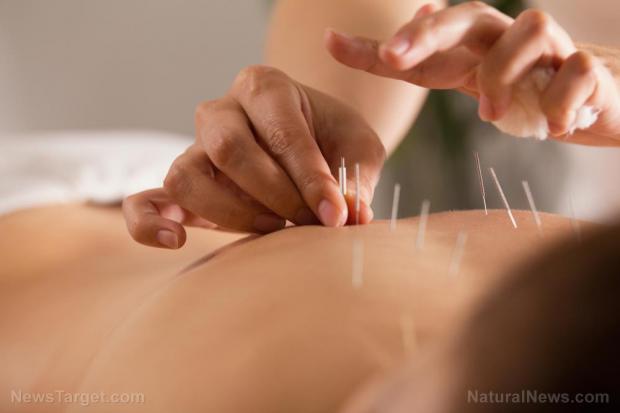
Breaking News
 Ron's Take: The US and Iran War
Ron's Take: The US and Iran War
 Kurdish Boots on the Ground with US/Israeli Air and Drones
Kurdish Boots on the Ground with US/Israeli Air and Drones
 Clinton Epstein Deposition Highlights: Ex-President & Secretary Of State Grilled On Ties...
Clinton Epstein Deposition Highlights: Ex-President & Secretary Of State Grilled On Ties...
Top Tech News
 US particle accelerators turn nuclear waste into electricity, cut radioactive life by 99.7%
US particle accelerators turn nuclear waste into electricity, cut radioactive life by 99.7%
 Blast Them: A Rutgers Scientist Uses Lasers to Kill Weeds
Blast Them: A Rutgers Scientist Uses Lasers to Kill Weeds
 H100 GPUs that cost $40,000 new are now selling for around $6,000 on eBay, an 85% drop.
H100 GPUs that cost $40,000 new are now selling for around $6,000 on eBay, an 85% drop.
 We finally know exactly why spider silk is stronger than steel.
We finally know exactly why spider silk is stronger than steel.
 She ran out of options at 12. Then her own cells came back to save her.
She ran out of options at 12. Then her own cells came back to save her.
 A cardiovascular revolution is silently unfolding in cardiac intervention labs.
A cardiovascular revolution is silently unfolding in cardiac intervention labs.
 DARPA chooses two to develop insect-size robots for complex jobs like disaster relief...
DARPA chooses two to develop insect-size robots for complex jobs like disaster relief...
 Multimaterial 3D printer builds fully functional electric motor from scratch in hours
Multimaterial 3D printer builds fully functional electric motor from scratch in hours
 WindRunner: The largest cargo aircraft ever to be built, capable of carrying six Chinooks
WindRunner: The largest cargo aircraft ever to be built, capable of carrying six Chinooks
Integrative medicine hold great potential for alleviating pain better than opioids

(Natural News) Integrative medicine approaches, such as acupuncture and yoga, have great potential in treating pain. A review published in the journal Anesthesia & Analgesia reported that acupuncture, yoga, and other integrative medicine approaches have shown at least preliminary evidence of effectiveness in pain management.
For the review, a team of researchers led by Yuan-Chi Lin, M.D., MPH, a researcher at Harvard Medical School, evaluated existing evidence on integrative medicine therapies for pain management. The review included 32 studies that examined seven various types of integrative medicine therapies for pain.
Among all of the integrative medicine therapies evaluated, acupuncture showed the strongest evidence for effectiveness in alleviating pain. Acupuncture is a traditional therapy that involves thin needles being inserted into the skin. It has been used in Asia for centuries to treat various health conditions and manage pain. Today, it is being used in the U.S. and other Western countries to low back pain, nerve pain, headaches, fibromyalgia, menstrual cramps, and more.
In the review, acupuncture was revealed to have a "strong positive evidence" on effectively treating chronic pain. A number of studies have also shown that acupuncture reduced the need of opioids to control pain after surgery. It also reduced opioid-related side effects.
Yoga, relaxation techniques such as mindfulness meditation, tai chi, massage therapy, and spinal manipulation showed "positive preliminary evidence" of effectiveness in pain treatment. Several studies also addressed the effects of the use of prescription drugs, including opioids. Studies on the effectiveness of the supplements glucosamine and chondroitin for relieving knee pain showed mixed results.

 Tulsi Gabbard Should Resign
Tulsi Gabbard Should Resign
 RNA Crop Spray: Should We Be Worried?
RNA Crop Spray: Should We Be Worried?

